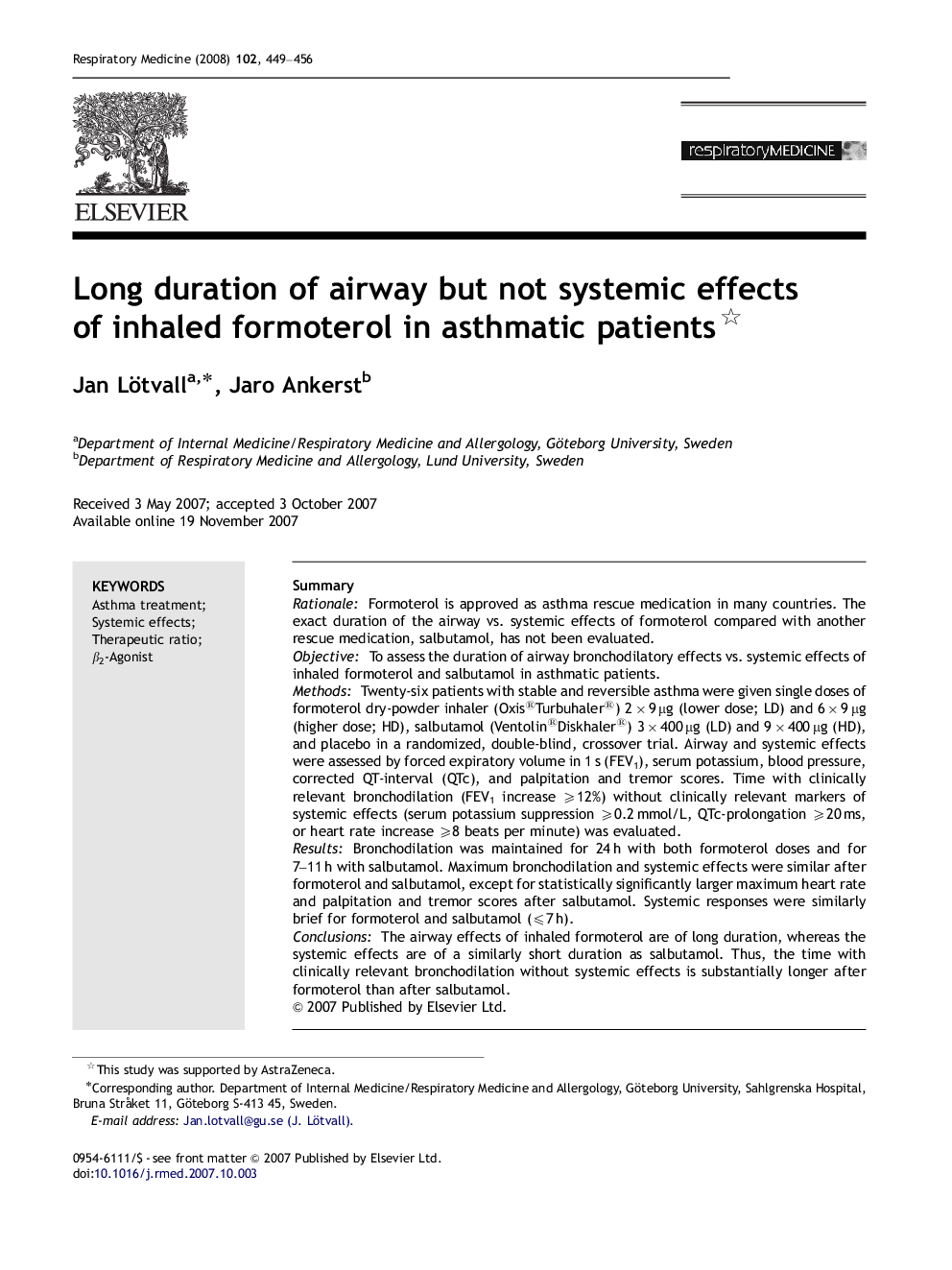| Article ID | Journal | Published Year | Pages | File Type |
|---|---|---|---|---|
| 4211301 | Respiratory Medicine | 2008 | 8 Pages |
SummaryRationaleFormoterol is approved as asthma rescue medication in many countries. The exact duration of the airway vs. systemic effects of formoterol compared with another rescue medication, salbutamol, has not been evaluated.ObjectiveTo assess the duration of airway bronchodilatory effects vs. systemic effects of inhaled formoterol and salbutamol in asthmatic patients.MethodsTwenty-six patients with stable and reversible asthma were given single doses of formoterol dry-powder inhaler (Oxis®Turbuhaler®) 2×9 μg (lower dose; LD) and 6×9 μg (higher dose; HD), salbutamol (Ventolin®Diskhaler®) 3×400 μg (LD) and 9×400 μg (HD), and placebo in a randomized, double-blind, crossover trial. Airway and systemic effects were assessed by forced expiratory volume in 1 s (FEV1), serum potassium, blood pressure, corrected QT-interval (QTc), and palpitation and tremor scores. Time with clinically relevant bronchodilation (FEV1 increase ⩾12%) without clinically relevant markers of systemic effects (serum potassium suppression ⩾0.2 mmol/L, QTc-prolongation ⩾20 ms, or heart rate increase ⩾8 beats per minute) was evaluated.ResultsBronchodilation was maintained for 24 h with both formoterol doses and for 7–11 h with salbutamol. Maximum bronchodilation and systemic effects were similar after formoterol and salbutamol, except for statistically significantly larger maximum heart rate and palpitation and tremor scores after salbutamol. Systemic responses were similarly brief for formoterol and salbutamol (⩽7 h).ConclusionsThe airway effects of inhaled formoterol are of long duration, whereas the systemic effects are of a similarly short duration as salbutamol. Thus, the time with clinically relevant bronchodilation without systemic effects is substantially longer after formoterol than after salbutamol.
